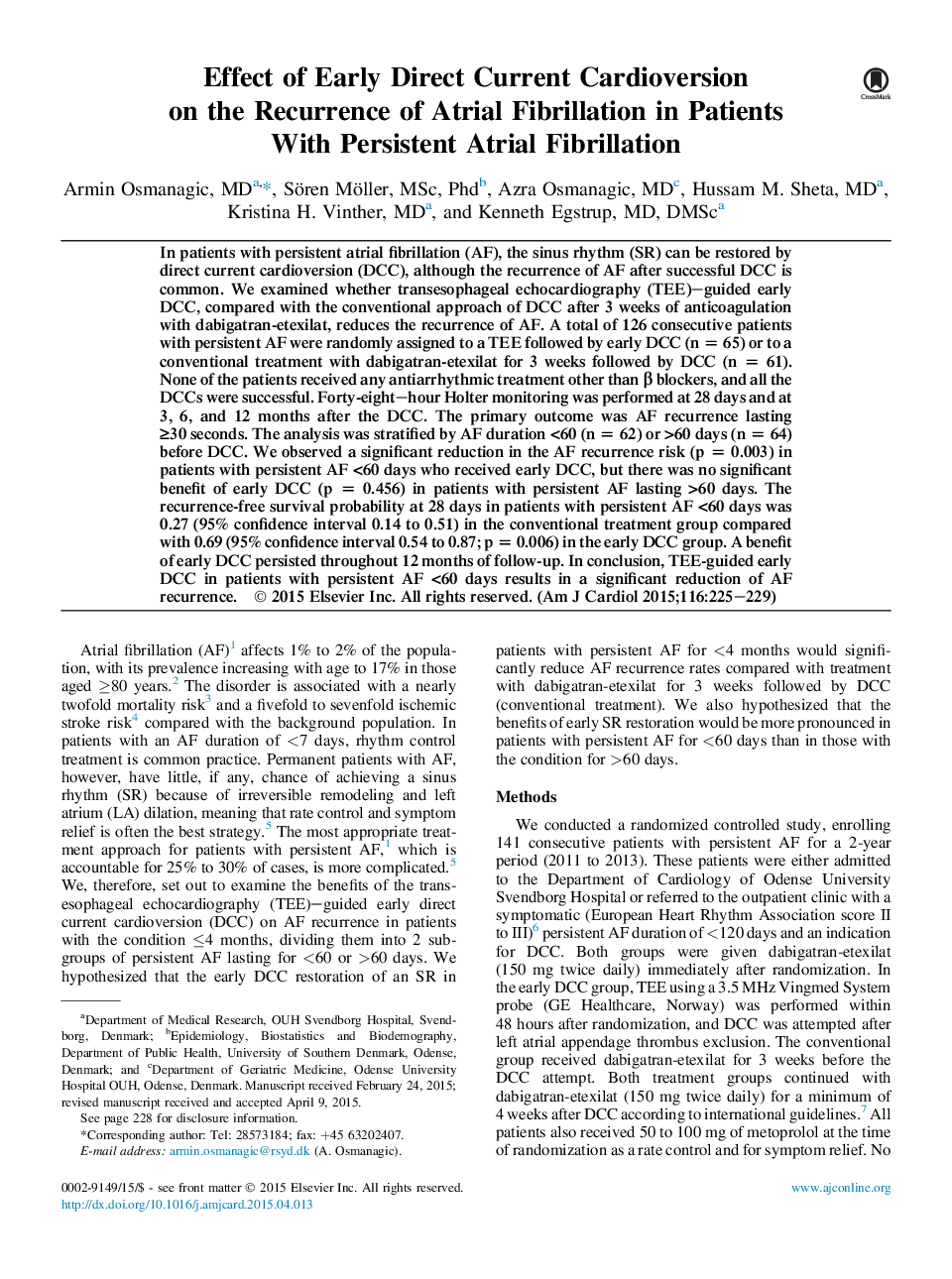| Article ID | Journal | Published Year | Pages | File Type |
|---|---|---|---|---|
| 2853166 | The American Journal of Cardiology | 2015 | 5 Pages |
In patients with persistent atrial fibrillation (AF), the sinus rhythm (SR) can be restored by direct current cardioversion (DCC), although the recurrence of AF after successful DCC is common. We examined whether transesophageal echocardiography (TEE)–guided early DCC, compared with the conventional approach of DCC after 3 weeks of anticoagulation with dabigatran-etexilat, reduces the recurrence of AF. A total of 126 consecutive patients with persistent AF were randomly assigned to a TEE followed by early DCC (n = 65) or to a conventional treatment with dabigatran-etexilat for 3 weeks followed by DCC (n = 61). None of the patients received any antiarrhythmic treatment other than β blockers, and all the DCCs were successful. Forty-eight–hour Holter monitoring was performed at 28 days and at 3, 6, and 12 months after the DCC. The primary outcome was AF recurrence lasting ≥30 seconds. The analysis was stratified by AF duration <60 (n = 62) or >60 days (n = 64) before DCC. We observed a significant reduction in the AF recurrence risk (p = 0.003) in patients with persistent AF <60 days who received early DCC, but there was no significant benefit of early DCC (p = 0.456) in patients with persistent AF lasting >60 days. The recurrence-free survival probability at 28 days in patients with persistent AF <60 days was 0.27 (95% confidence interval 0.14 to 0.51) in the conventional treatment group compared with 0.69 (95% confidence interval 0.54 to 0.87; p = 0.006) in the early DCC group. A benefit of early DCC persisted throughout 12 months of follow-up. In conclusion, TEE-guided early DCC in patients with persistent AF <60 days results in a significant reduction of AF recurrence.
